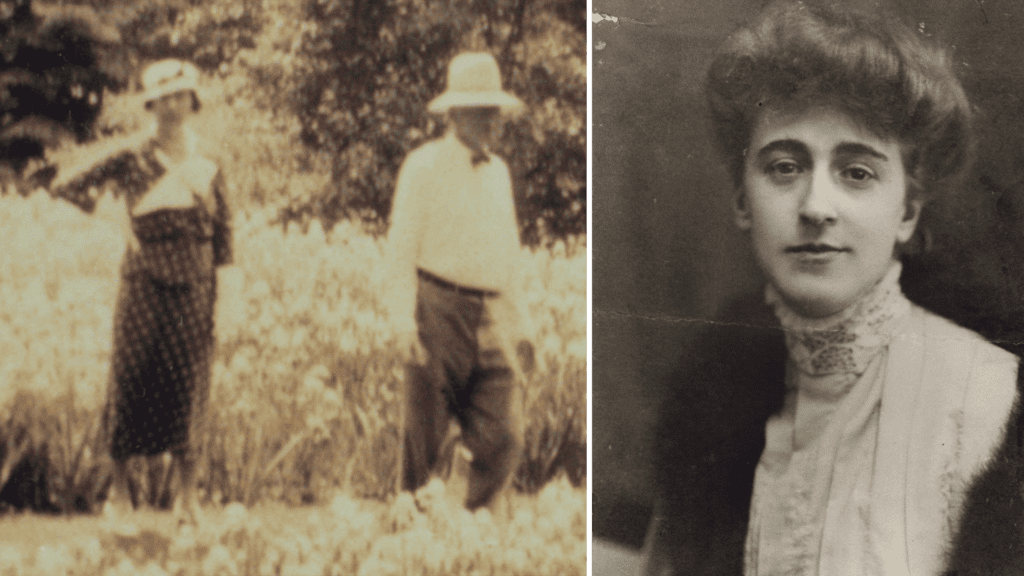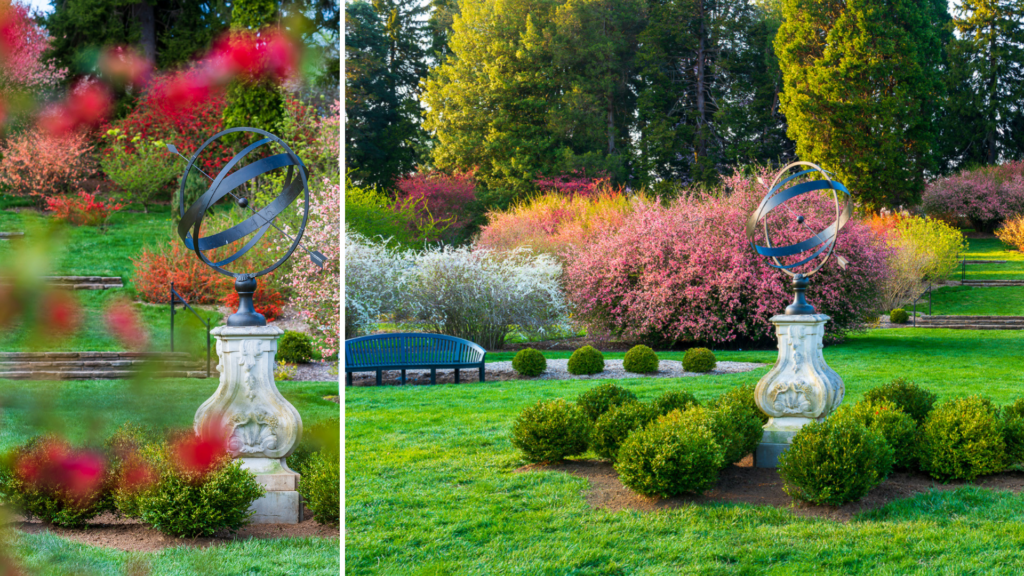
Marian Cruger Coffin (1876–1957) was one of the first American women landscape architects and a lifelong friend of Henry Francis du Pont. When H. F. was studying horticulture at Harvard’s Bussey Institution, he reconnected with Coffin, who was pursuing a degree in landscape architecture as a special student at the Massachusetts Institute of Technology, the only professional program open to women at the time. After inheriting Winterthur on his father’s death in late 1926, du Pont planned an expansion of the house, and he commissioned Coffin to design a formal garden adjacent to the house.

Drawing inspiration from the great Italian gardens of the Renaissance, with their axial symmetry, classical proportions, and refined architectural features, Coffin created an impressive yet intimate garden that has been called a serene oasis. The triumph of the project was the grand staircase leading down to a swimming pool, now called the Reflecting Pool. The nearby Glade Garden was also designed by Coffin. With its naturalistic pools and waterfalls, this area offers a shady summer refuge.

Coffin’s most prominent project at Winterthur is the Sundial Garden. Du Pont asked for her help with its design in 1955, and it was created expressly for the public. He wanted an April garden, “all pink and white,” as appealing as the azaleas in May. Coffin’s plan featured fragrant trees and shrubs, including magnolias, cherries, quince, crab apples, viburnums, spireas, fothergillas, lilacs, pearlbushes, and roses, which are arranged in concentric circles around an antique armillary sundial. The result is a room made of flowers, known as a “room garden.”

Although their approaches were different—du Pont leaned more to a natural landscape inspired by the writings of William Robinson, whereas Coffin’s approach was more formal—together they created the beautiful garden that visitors still enjoy today.
Coffin’s papers, architectural plans, and photographs of her other garden designs are in the Winterthur Archives, including this Depression-era letter:
May 4, 1933.
My dear Harry,
Every moment spent at Winterthur was a pleasure as always, but this spring to see so much beauty was balm to the spirit. . . . You have been such an extraordinarily understanding client and have given me such a marvelous opportunity to help in creating the new development of the grounds that I can never be grateful enough, so at this time when we are all economizing please accept the suggestions I made as love-taps to Winterthur. . . .
My love to you all,
As always,
Marian Coffin